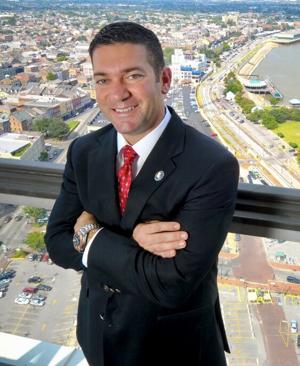
A decade ago, radical changes in the National Flood Insurance Program threatened to wipe out South Louisiana. Well-intended — but poorly designed — legislation, the Biggert-Waters Flood Insurance Reform Act, had the sudden impact of raising flood insurance rates on some residents to over $10,000 per year. Tearful homeowners began dropping off their keys at their banks, facing the prospect of losing their homes despite having done nothing wrong.
In response, GNO, Inc., along with over a dozen parish presidents, formed the Coalition for Sustainable Flood Insurance. CSFI grew to become a national movement, with more than 250 members across 35 states, and, along with the Louisiana federal delegation, drove the passage of the Homeowners Flood Insurance Affordability Act of 2014. For the moment, coastal Louisiana, and America, were spared.
Now, the specter of unaffordable flood insurance has risen again, this time with a putative reform called “Risk Rating 2.0.” Despite the claim that Risk Rating 2.0 “enables FEMA to set rates that are fairer,” a recent analysis shows that rates will go up an average of 134% in Louisiana, one of the steepest increases in America, despite massive investments in flood protection and the well-documented financial challenges of our residents.
Yet, incredibly, flood insurance is not our biggest insurance challenge today. While triple-digit flood increases are a big problem, they will be phased in over time for existing policies, making flood insurance a slow-moving disaster.
The immediate crisis is homeowners insurance. For a host of natural (hurricanes) and man-made (regulatory) reasons, more than 20 insurance companies have recently stopped writing in Louisiana. The effect is that homeowners insurance rates are skyrocketing: it is not unusual to hear of policies that were $5,000 last year going to $15,000 or more. And Louisiana Citizens, the “insurer of last resort,” has announced a 63% year-on-year increase for residents. The result is a compounding real estate crisis: Even more current homeowners cannot afford their monthly note, while prospective buyers increasingly cannot afford to buy into the market.
The good news is that we have seen this movie before — even if this one is a double-feature horror show. We know how to beat the monster.
On flood, the Coalition for Sustainable Flood Insurance has reengaged, and is hitting D.C. We have met with NFIP Administrator David Maurstad, and, along with the Louisiana delegation and national partners, are demanding transparency and affordability from FEMA, Congress and the Biden administration. Specific recommendations of the coalition include: incentivizing mitigation, enacting a means-tested affordability program and forgiving NFIP’s $21 billion of debt. Lawsuits from St. Charles Parish and our attorney general are adding additional pressure.
There is indication that common sense and the public outcry are beginning to have impact; Administrator Maurstad recently admitted to Congress that “NFIP requires meaningful structural change.”
On the other front, homeowners insurance, our state legislators and the Department of Insurance are uniting around reform and funding to address the current crisis.
First, the $45 million “Insure Louisiana Incentive Fund,” proposed by Commissioner Jim Donelon and approved by the Legislature, is expected to bring at least eight insurers back into the market, which will create more competition and lower rates.
Next, GNO, Inc. is supporting legislation that will require insurance companies to make explicit the premium benefit from installing “fortified roofs,” delivering financial relief to people who make smart investments. And $10 million is expected to be put toward the “Louisiana Fortify Homes Program” this session, so that the Department of Insurance can offer grants to homeowners.
Lawmakers are also considering a package of legislation will make corrections to laws that have allowed for abuses of the system, like those perpetuated by the Houston-based law firm MM&A. This corrective legislation includes House Bill 183 to prohibit assignment of benefits and House Bill 601 to eliminate ambiguity in our bad faith statute. The net result of these legal fixes is that with less abuse, consumers will be protected, while rates should come down for everyone.
As we did a decade ago, GNO, Inc., will work with our elected officials and partners to successfully address our insurance challenges. The double-feature insurance crisis is real, but we understand the problems and can drive solutions that will help Louisiana, while providing a model for the nation.
Michael Hecht is president & CEO of Greater New Orleans, Inc.

Leave a Reply